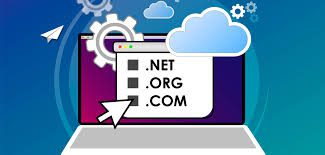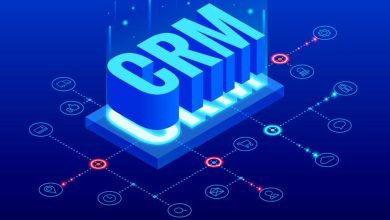.
If you work in web development, data warehousing, or information management, it’s important to understand the differences and similarities between SQL and MySQL.
After all, each one of them has particularities that can influence the environment, storage engines, security, cost of use, compatibility with other tools and much more.
Thinking about it, we prepared this complete article with the main information for you to understand the difference between these two systems. Be sure to check it out!
What is MySQL
MySQL is an open source relational database management system used worldwide. This system was designed with the objective of tending to the needs of developers and businesses looking for an efficient, easy-to-use and reliable database solution.
There are many factors that make this a plural system, such as its flexibility, high performance, scalability and developer support.
MySQL has as one of its main advantages, the ability to handle large volumes of data, with maximum efficiency. After all, it has the capacity to support concurrent read and write operations, allowing more than one user to access and use the database simultaneously, without compromising its performance.
It supports different data types like numbers, strings, dates, images and more, as well as advanced features for complex queries, indexes for query and transaction optimizations to ensure data consistency.
What is SQL
SQL is a standard programming language also used to manage relational databases. The main role of SQL is to allow users to interact with databases to perform various tasks such as inserting, querying, updating and deleting data.
Using this language model, developers can create, modify and query database structures, perform data manipulation analysis, as well as define constraints rules to ensure the integrity of stored data.
The SQL language was developed with a clear and concise syntax, to facilitate its understanding and use. This is because it consists of a set of commands that are sent to the database management system so that specific operations can be carried out.
As categories of SQL commands, we can mention the 4 main groups, which are:
- Data Definition Command (DDL);
- Data Manipulation Commands (DML);
- Control and Transaction Commands (DCL);
- Data Control Command (DCL0).
What is the difference between SQL and MySQL
Now, to make it easier to understand, let’s show the main differences between SQL and MySQL. Follow along!
Environment
SQL is a standard programming language for managing relational databases, while MySQL is a database management system that implements the SQL language.
OSQL is a language and MySQL is specific software that uses the SQL language to perform operations and databases.
storage engines
A significant difference between SLQ and MySQL is in the storage engines. SQL is a language that can be used with different database management systems such as MySQL, Oracle, Microsoft SQL Server, PostgreSQL and many more.
MySQL is a database management system that has its own storage engines, the most common of which are InnoDB, MyISAM and Memory.
Security
Both SQL and MySQL offer security features to protect data stored in databases. What can vary is the implementation of security between different database management systems.
Cost
The difference between SQL and MySQL, when it comes to cost, is that SQL is a standard language and it is available to be used in various database management systems, some of which may be commercial and require a license to use. .
MySQL is an open source database management system that can be used for free. But, depending on the need, fees may be charged for the support service, consulting and additional resources.
Compatibility
Because SQL is a widely supported standard language, it can be used with many database management systems. In turn, MySQL is already a specific database management system, which makes its compatibility with systems vary.
Support
In terms of support, SQL is supported by multiple vendors and has an active community of developers and users who can provide support and guidance.
MySQL, on the other hand, has the support of a community and the company that owns it, which also offers commercial support for its correct use and operation.
How to choose between the two systems
To know which is the best choice between SQL and MySQL, there is no ready answer, but understanding their features and the needs of each one. When deciding, consider the following aspects:
- specific project need: Assess project requirements such as data volume, query complexity, and required operations;
- development environment: check system compatibility with other tools that the company uses;
- scalability: if the expectation is for significant database growth, MySQL may be the best option;
- advanced features: MySQL may be the best solution if you demand features like replication, partitioning and clustering;
- security: choose the option that best suits your needs, in terms of authentication options, connection encryption and access control;
- cost: consider the availability of company resources, as well as the resource needs of each of the options;
- Support: Both SQL and MySQL offer community and development options, as well as user bases that can provide support.
As we saw, SQL and MySQL have their own characteristics and specificities, making it essential to consider the needs of the company and the project to understand the best hiring option.
Therefore, consider the needs of the project, the development environment, scalability, security, costs, compatibility, support and other aspects that are important for your need. After all, SQL and MySQL offer advantages and disadvantages.
Interested in learning more about solutions like these? So contact us right now and talk to our team.
.









